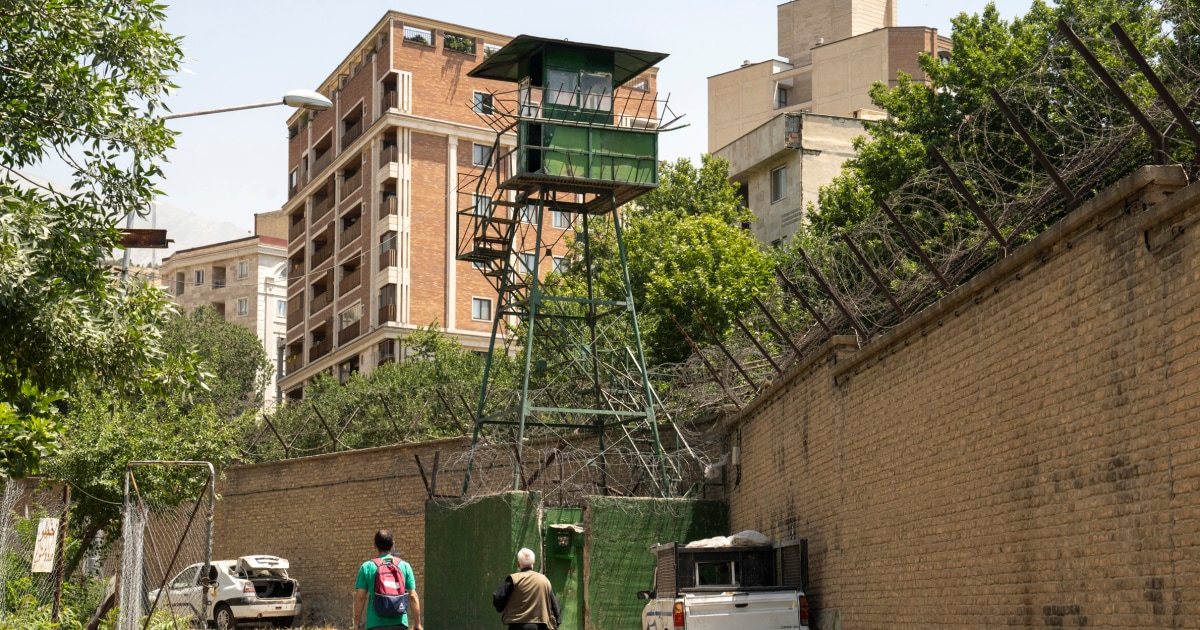TEHRAN — An elderly Iranian American man named Kamran Hekmati, who is Jewish and battling bladder cancer, has been detained in Tehran's infamous Evin Prison, according to a family member who spoke to NBC News. The 70-year-old from New York was arrested in July after traveling to Iran in May for a personal visit, with charges stemming from a trip he made to Israel 13 years ago to celebrate his son's bar mitzvah.
Hekmati's detention highlights the ongoing risks faced by dual nationals and Americans in Iran, where visits to Israel are prohibited under Iranian law. The family member, speaking anonymously due to fears of repercussions, described how Hekmati was interrogated multiple times at a relative's home before his arrest. "He is in poor health," the family member told NBC News, expressing hope for his release on humanitarian grounds.
According to a source familiar with the arrests, who spoke on condition of anonymity, Hekmati is one of at least four Americans currently detained in Iran. This includes Iranian American journalist Reza Valizadeh, who has been held since 2024. The detentions come amid heightened tensions between the U.S. and Iran, with the Islamic Republic often accused of using foreign nationals as bargaining chips in diplomatic negotiations.
The U.S. State Department has declined to comment directly on Hekmati's case, citing privacy considerations. A spokesperson for the department told NBC News they could not provide the exact number of detained U.S. citizens. However, the spokesperson emphasized Iran's track record, stating,
“The Iranian regime has a long history of unjustly and wrongfully detaining other countries’ citizens. Iran should release these individuals immediately.”
Iran's mission to the United Nations has declined to comment on the matter, leaving the family's account and U.S. officials' statements as the primary sources of information. Hekmati's case was first reported by The New York Times, which brought initial attention to his plight.
Evin Prison, where Hekmati is being held, is notorious for housing political prisoners and has been the site of numerous human rights abuses, according to various international reports. Detainees there have often reported harsh conditions, including limited medical care, which is particularly concerning given Hekmati's ongoing battle with bladder cancer. The family member noted that his health has deteriorated since his arrest in July.
The incident underscores the State Department's longstanding travel advisory against visiting Iran. A spokesperson reiterated the warning, saying,
“Anyone with a U.S. connection, including dual U.S.-Iranian nationals, is at significant risk of questioning, arrest, and detention in Iran. We continue to engage with allies and partners on this issue and on cases of unjust detention in Iran in general.”
Hekmati's trip to Israel in 2011 for his son's bar mitzvah appears to be the crux of the charges against him. Under Iranian law, citizens are barred from traveling to Israel, which Iran does not recognize and considers an enemy state. This prohibition has led to similar detentions in the past, though specifics on Hekmati's sentencing were not detailed by the family member.
Reza Valizadeh, the detained journalist mentioned in connection with Hekmati, was arrested in 2024, though details of his case remain limited. Reports suggest he was taken into custody while working in Iran, adding to the list of media professionals targeted by the regime. The source familiar with the arrests indicated that these cases are part of a broader pattern, with at least four Americans currently held.
Broader context reveals that Iran has detained numerous foreign nationals over the years, often on espionage charges or other security-related accusations. For instance, in recent years, prisoners like British-Iranian dual national Nazanin Zaghari-Ratcliffe and American Siamak Namazi have been released through prisoner swaps or diplomatic deals. Such releases sometimes coincide with concessions, like the unfreezing of Iranian assets abroad.
The U.S. has repeatedly called for the release of its citizens, labeling many detentions as wrongful. In Hekmati's case, his age and health issues add a layer of urgency. The family member expressed frustration over the lack of progress, noting that Hekmati had lived in New York and only returned to Iran for what was intended as a brief personal visit.
Human rights organizations have long criticized Iran's judicial system for its handling of dual nationals. Amnesty International and Human Rights Watch have documented cases where detainees face unfair trials and coerced confessions. While no specific reports have emerged about Hekmati's treatment beyond the family's account, the pattern raises concerns.
As diplomatic channels remain open, U.S. officials continue to press for resolutions. The State Department's engagement with allies suggests potential multilateral efforts to secure releases. However, with Iran's UN mission staying silent, the path forward remains unclear.
The implications of such detentions extend beyond individual cases, affecting U.S.-Iran relations and travel policies. Families like Hekmati's are left in limbo, advocating quietly for humanitarian considerations. As one of at least four detained Americans, his story adds to the calls for immediate action from Tehran.
Looking ahead, experts suggest that any breakthrough might tie into larger negotiations, such as those over Iran's nuclear program or sanctions relief. Until then, Hekmati and others remain in Evin Prison, their fates intertwined with international politics.
